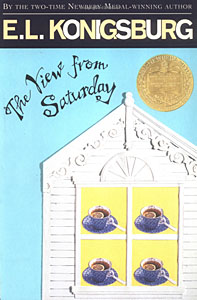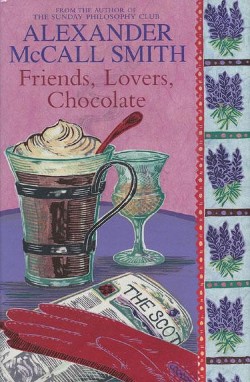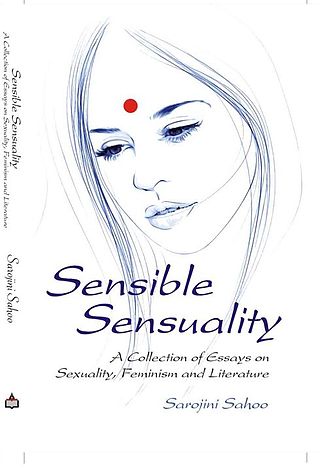
Simone Lucie Ernestine Marie Bertrand de Beauvoir was a French existentialist philosopher, writer, social theorist, and feminist activist. Though she did not consider herself a philosopher, nor was she considered one at the time of her death, she had a significant influence on both feminist existentialism and feminist theory.

At Bertram's Hotel is a work of detective fiction by Agatha Christie and first published in the UK by the Collins Crime Club on 15 November 1965 and in the US by Dodd, Mead and Company the following year. The UK edition retailed at sixteen shillings (16/-) and the US edition at $4.50. It features the detective Miss Marple staying at an upmarket hotel which is at the centre of a mysterious disappearance.

Clarissa; or, The History of a Young Lady: Comprehending the Most Important Concerns of Private Life. And Particularly Shewing, the Distresses that May Attend the Misconduct Both of Parents and Children, In Relation to Marriage is an epistolary novel by English writer Samuel Richardson, published in 1748. It tells the tragic story of a young woman, Clarissa Harlowe, whose quest for virtue is continually thwarted by her family. The Harlowes are a recently wealthy family whose preoccupation with increasing their standing in society leads to obsessive control of their daughter, Clarissa. It is considered one of the longest novels in the English language. It is generally regarded as Richardson's masterpiece.

Paula Fox was an American author of novels for adults and children and of two memoirs. For her contributions as a children's writer she won the biennial, international Hans Christian Andersen Award in 1978, the highest international recognition for a creator of children's books. She also won several awards for particular children's books including the 1974 Newbery Medal for her novel The Slave Dancer; a 1983 National Book Award in category Children's Fiction (paperback) for A Place Apart; and the 2008 Deutscher Jugendliteraturpreis for A Portrait of Ivan (1969) in its German-language edition Ein Bild von Ivan.

Jane Duncan was the pseudonym of Scottish author Elizabeth Jane Cameron, best known for her My Friends series of semi-autobiographical novels. She also wrote four novels under the name of her principal heroine Janet Sandison, and some children's books.

The View from Saturday is a children's novel by E. L. Konigsburg, published by Atheneum Books for Young Readers in 1996. It won the 1997 Newbery Medal for excellence in American children's literature, the author's second Medal.
Marianne Wiggins is an American author. According to The Cambridge Guide to Women's Writing in English, Wiggins writes with "a bold intelligence and an ear for hidden comedy." She has won a Whiting Award, an National Endowment for the Arts award and the Janet Heidinger Kafka Prize. She was a finalist for the Pulitzer Prize in fiction in 2004 for her novel Evidence of Things Unseen.

Sarojini Sahoo is an Indian feminist writer, a columnist in The New Indian Express and an associate editor of Chennai-based English magazine Indian AGE. She has been enlisted among 25 Exceptional Women of India by Kindle Magazine of Kolkata. and is an Odisha Sahitya Academy Award winner.

Mary: A Fiction is the only complete novel by 18th-century British feminist Mary Wollstonecraft. It tells the tragic story of a woman's successive "romantic friendships" with a woman and a man. Composed while Wollstonecraft was a governess in Ireland, the novel was published in 1788 shortly after her summary dismissal and her decision to embark on a writing career, a precarious and disreputable profession for women in 18th-century Britain.

Dorothy Koomson is a contemporary British novelist, who is of Ghanaian descent. She has been described as "Britain's biggest selling black author of adult fiction".

Friends, Lovers, Chocolate is the second of the Sunday Philosophy Club series of novels by Alexander McCall Smith, set in Edinburgh, Scotland, and featuring the protagonist Isabel Dalhousie. It was first published in 2005, and is the sequel to The Sunday Philosophy Club.

Scenes of Clerical Life is George Eliot's first published work of fiction, a collection of three short stories, published in book form; it was the first of her works to be released under her famous pseudonym. The stories were first published in Blackwood's Magazine over the course of the year 1857, initially anonymously, before being released as a two-volume set by Blackwood and Sons in January 1858. The three stories are set during the last twenty years of the eighteenth century and the first half of the nineteenth century over a fifty-year period. The stories take place in and around the fictional town of Milby in the English Midlands. Each of the Scenes concerns a different Anglican clergyman, but is not necessarily centred upon him. Eliot examines, among other things, the effects of religious reform and the tension between the Established and the Dissenting Churches on the clergymen and their congregations, and draws attention to various social issues, such as poverty, alcoholism and domestic violence.

Pastors and Masters is a short novel by Ivy Compton-Burnett published in 1925. Called "a work of genius" by The New Statesman, it was the author's second novel and the first in which she introduced the characteristic style of clipped, precise dialogue that was to make her name. It is largely a character study, dealing with themes of tyranny, female subservience and unconventional sexuality within the setting of a boys’ preparatory school.
Linda Carroll is an American writer, marriage counselor, and family therapist. Carroll received national attention in 1993 when one of her patients, the fugitive Katherine Ann Power, turned herself in to authorities after spending twenty-three years eluding police. Carroll is best known professionally as a couples therapist and as an author of three books, the latest being Love Cycles: The Five Essential Stages of Lasting Love, in 2014.

It's a Date is a 1940 American musical film directed by William A. Seiter and starring Deanna Durbin, Kay Francis, and Walter Pidgeon. Based on a story by Jane Hall, Frederick Kohner, and Ralph Block, the film is about an aspiring actress who is offered the lead in a major new play, but discovers that her mother, a more experienced actress, was hoping to get the same part. Their lives are complicated further when they both get involved with the same man. Distributed by Universal Pictures, It's a Date was remade in 1950 as Nancy Goes to Rio.
Pamela Moore was an American novelist best known for her debut novel Chocolates for Breakfast. She published her first novel, Chocolates for Breakfast, at age eighteen, which garnered her critical attention for its provocative themes involving its teenage protagonist.
Elena Ferrante is a pseudonymous Italian novelist. Ferrante's books, originally published in Italian, have been translated into many languages. Her four-book series of Neapolitan Novels are her most widely known works. Time magazine called Ferrante one of the 100 most influential people in 2016.

Sensible and Sensuality is a collection of essay by Indian feminist writer Sarojini Sahoo. Published in 2010, the book contains the author's view on feminism. Sahoo is a key figure and trend-setter of feminism in contemporary Indian literature. She has been listed among 25 exceptional women of India by Kindle English magazine of Kolkata. For Sahoo, feminism is not a "gender problem" or confrontational attack on male hegemony and, as such, differs from the feminist views of Virginia Woolf or Judith Butler.

The Crazy Man is a 2005 Canadian children's novel written by Pamela Porter. This realistic family novel told in free verse has received many awards and was selected for the Governor General's Literary Award. The story is about a girl named Emaline who lives on a farm. Emaline's family falls apart after a terrible tractor accident. After chasing her beloved dog, Emaline's father accidentally runs over her leg with a tractor leaving her permanently disabled. Because of guilt, Emaline's father shoots her dog, Prince, and ends up leaving Emaline and her mother on their own. The narrative follows Emaline as she deals with prejudice, fear, her disability, and the absence of her father.

Henrietta is an 18th-century novel by Scottish author Charlotte Lennox. The first edition was published in 1758, and the second edition, revised by Lennox was published in 1761.
















